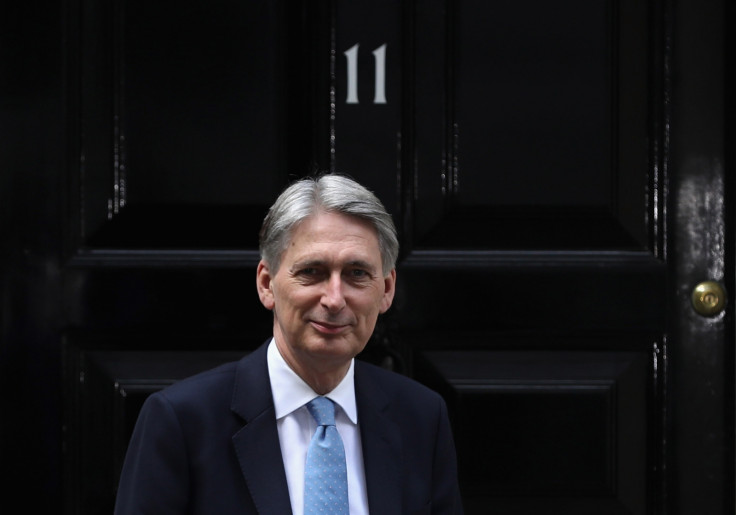Autumn Statement 2016: How women are set to lose out to austerity yet again
Chancellor Philip Hammond will present his first big budget statement - but it likely won't favour women.
Philip Hammond will deliver his first Autumn Statement as chancellor this week, with a focus on Brexit and "JAMS" – Theresa May's acronym for "just about managing" families living on a shoestring.
According to briefings ahead of the statement, Hammond may relax fiscal targets and loosen the purse strings tightened by his predecessor George Osborne, finally heralding an end to austere times.
But as Hammond has previously alluded, there is no room in the budget for a splurge in public spending. Austerity isn't over yet – which is not good news for those disproportionately affected by Osborne's legacy of stringent cuts, including women.
Despite May's commitment to a country that "works for everyone", women's groups say some of the measures tipped to be announced in tomorrow's statement could hit women's pockets the hardest.
If the government accelerates plans to raise the personal allowance — the earnings threshold at which you start paying income tax — it will benefit both low and middle-earners.
But if it also pushes ahead in raising the threshold for the 40% tax rate to £50,000, it will be yet another tax cut that favours higher earners over poorer workers. Many low earners are women in part-time or precarious jobs who are already hit hard by ongoing cuts to benefits and tax credits, and need extra financial support.
And not only would this benefit higher earners, it also erodes the tax revenue needed to provide vital services, of which women rely on more than men.
"All the indications are that women, especially those on low incomes, will again be disproportionately hit by measures in the Autumn Financial Statement. Women are already set to shoulder 85% of cuts since 2010," says Dr Eva Neitzert, director of the Women's Budget Group.

"The chancellor has been widely tipped to raise the tax threshold for higher rate taxpayers and freeze fuel duty. Both are measures that will benefit men and those on higher incomes, but not the low-income women who are in greatest need."
Women have already bore the brunt of 85% of the government's changes to tax and benefits by 2020, according to the latest research by the WBG.
Research released last week showed women will on be an average of £1,003 a year worse off, compared to £555 for men – with women on lower incomes the worst affected. And women who earn the least stand to lose considerably more, with those in the lowest 20% of households standing to lose up to 15% of their individual income.
And it's not just cuts and freezes in benefits that are driving this inequality, but the failure of measures such as the introduction of the National Living Wage and the raising of personal allowance to compensate lower earners. As the WBG points out, the roll-out of Universal Credit – and subsequent cuts – is set to make people worse off than if the tax credits system had been continued.
Women lose more from the direct tax and welfare changes than men mainly because they rely more heavily on social security, and receive a larger proportion of benefits and tax credits relating to children and care – which have comprised a large proportion of the social security cuts in the last five years.
Single parents – of which 90% are women – and lone pensioners have been affected particularly badly. Working single parents already struggling to make ends meet could face losing up to a month's income a year under planned cuts to Universal Credit, according to the charity Gingerbread.
"There is no doubt that year on year women are losing out significantly more than men. It is particularly concerning that women in the bottom 30% of households will be up to 20% worse off by 2020," says Sam Smethers, chief executive of the Fawcett Society.
And if no substantial move is made to address these issues, Smethers warns the economy will continue to work against women and equality. So far, Hammond has been non-committal on reversing welfare cuts, stating in an interview with the BBC that UK finances had to be "watertight" to manage the economic risks posed by Brexit.
"In the Autumn Statement the chancellor could take action to begin to reverse this trend," Smethers says. "He could invest in our childcare and social care infrastructure, reverse planned cuts to universal credit or raise the National Living Wage to deliver a real living wage.
"If he doesn't take action our society and our economy will continue to work against women and against equality, leaving us all poorer as a result."
© Copyright IBTimes 2025. All rights reserved.






















